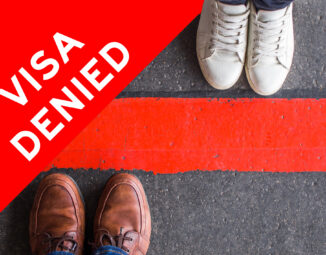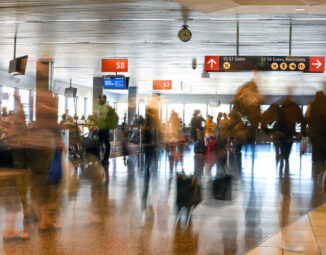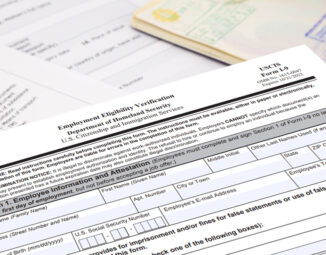Paris and San Bernardino Terror Invites Tighter Restrictions on Visa Free Travel to the U.S.
On Tuesday, December 8, 2015, The House of Representatives overwhelmingly passed a bill imposing new restrictions on the current Visa Waiver Program (VWP), which permits citizens of 38 participating countries to travel to the United States without a visa for stays of up to 90 days if they meet all requirements, including a background check through the Electronic System for Travel Authorization. Since its inception, over twenty million visitors have traveled to the United States without first having to apply for a visa and undergo an interview at a U.S. consulate overseas. The VWP came under scrutiny in the wake of the Paris terrorist attacks on October 13th when it became apparent that several of the perpetrators of those attacks were citizens of VWP countries (France and Belgium) and might have been able to pass undetected through U.S. border control without having first applied for a visa. President Obama heightened the alarm over visa free travel when, in his address to the nation on December 6, 2015, he indicated – erroneously –that Tashfeen Malik, the female terrorist in San Bernardino, had entered the U.S. on the VWP. In his address President Obama said he had “ordered the departments of State and Homeland Security to review the visa waiver program under which the female terrorist in San Bernardino originally came to this country.” In fact, Malik had entered on a K-1 visa as the fiancée of a U.S. citizen, further exposing a weakness in the system by which our country screens would be immigrants for threats to our national security.
Despite this discrepancy, Congress was eager to act on tightening restrictions on the VWP. The Visa Waiver Program Improvement and Terrorist Travel Prevention Act of 2015 was overwhelmingly approved by a vote of 407 to 19 and provides for increased information sharing between the United States and the 38 VWP countries. The bill also bars participation in the program to any otherwise qualified VWP traveler who, since March 1, 2011, has visited Iraq, Syria, Iran, Sudan, or any other country that has been designated as having “repeatedly provided support of acts of international terrorism.” Persons who have traveled to one of these countries since March 1, 2011 would be required to submit to the traditional visa approval process, which requires an in-person interview at a U.S. embassy or consulate. The House measure also requires countries participating in the VWP to issue passports with embedded chips containing biometric data, report information about stolen passports to Interpol and share information about known or suspected terrorists with the United States. A similar version of the bill is pending in the Senate and it is believed that it will pass and be signed into law before the year’s end.
These anticipated changes may affect U.S. businesses if they currently employ persons who are from a VWP country. While travel to the U.S. under the VWP forbids any activity involving remuneration from a U.S. source, current regulations permit the following business related activities under the VWP:
- consult with business associates;
- attend a scientific, educational, professional, or business convention or conference;
- attend short-term training without pay by any source in the United States, except for expenses incidental to one’s stay; and
- negotiate a contract.
There can be an easy reliance upon the VWP for short trips for these very purposes. Travelers from the U.K., France, Germany, South Korea, Taiwan, Japan, Australia, or other VWP nations have grown accustomed to entering the US without having to apply for a visa and undergo a consular interview. However, if the House bill – or something like it – becomes law, no traveler from these countries will be permitted entry on the VWP if he or she has traveled to a terror watch list country since March 1, 2011. To be sure, this number will be but a fraction of all VWP travelers to the United States. But nonetheless, business affairs do sometimes require travel to Iran and other terror watch countries, and employers and indeed all VWP travelers to the U.S. are advised to take heed. And if in doubt, consult with a knowledgeable immigration attorney if there is any question about your eligibility to enter the U.S. visa free.



